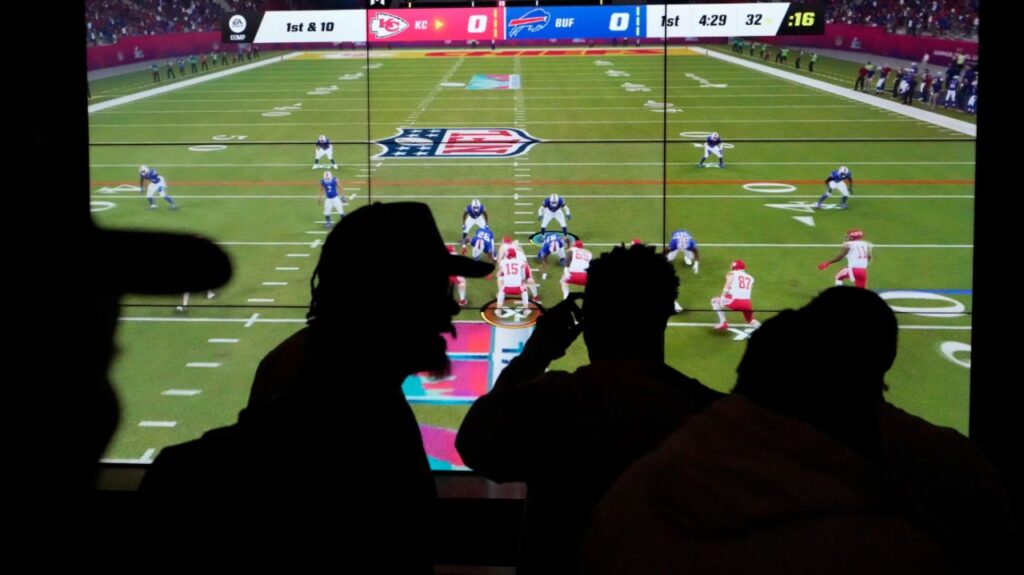After years of paralysis, the United States and European Union are moving to regulate social platforms.
The EU is taking interim steps to implement a new digital services law that came into effect for all online platforms on February 17th. Some U.S. states are trying to regulate how platforms moderate content, and the Supreme Court is currently considering the constitutionality. Regarding this foray into regulation. Meanwhile, the US Senate is inching closer to approving a bill that would force online platforms to implement additional child safety measures.
But these efforts to rein in social media overlook the huge online gaming industry. Video games constitute the largest entertainment industry by far, with revenues reaching nearly $200 billion in 2022 (more than the music and film industries combined). Today, online gaming sites offer much more than entertainment. Online gaming sites are social platforms that channel user communication and allow networking and community building.
Online gaming should be part of the regulatory discussion about digital platforms, but in practice it rarely is.
Discussions about the harms of games have historically focused on fear of the very content of games.but socializing The game's environment is one that actually poses a significant threat to the player's safety and well-being. Exposure to hate speech is common, but doxxing and physical threats that reveal personal information are also common. Of grave concern is the growing evidence that extremists and other bad actors are capitalizing on the existing toxic gamer culture to spread hateful ideology and provoke hate-based harassment.
Players, game makers, and civil society members are familiar with these issues, but many companies and policymakers are only beginning to address (and in some cases even acknowledge) these issues.
Gaming companies and policymakers appear to be operating on a misunderstanding of how privacy rights and free speech rights should apply online. This misunderstanding stems from inadequate consideration of the human rights on the other side of the equation: the human rights of victims of extremist harassment and violence.
The perpetuation of extremist ideologies rooted in hatred, harassment, and hostility toward particular groups undermines human rights, which are premised on the belief that all human beings have equal worth, regardless of their particular characteristics or group membership. It directly contradicts the concept itself. Indeed, exposure to extremist rhetoric and behavior in games has a tangible and sometimes devastating impact on victims of harassment, intimidation, and (in some cases) violence. In the most serious cases, the radicalization of extremists through gaming induces actions that violate an individual's right to life.
The perpetrators of the 2019 Christchurch massacre in New Zealand used gaming chatrooms to participate in and solicit support for racially motivated extremist ideology. His “gamification” of actual attacks led to subsequent mass shootings in Poway, California, El Paso, Texas, Halle, Germany, and Buffalo, New York, to name a few.
The gunman who killed 10 people and injured three others at Buffalo's Tops Friendly Market in 2022 probably wouldn't have become so nationalistic if it weren't for the popular online game Blood and Iron on Roblox. It wouldn't have been a target.”
Over the last few years, we, along with other researchers, have spoken publicly about the changes we want to see in the industry and policies surrounding gaming and extremism. This includes calls for industry to self-regulate and public recruitment for jobs. We will work with businesses to create a framework to leverage the positive effects of video games to prevent radicalization.
However, acting on these recommendations is hampered by the assumption that players in public game lobbies and servers are afforded privacy. In our view, this amounts to a distortion of the right to privacy and human rights in general, and protects the victims of online identity theft, stalking, threats to life, and other abuses, not the perpetrators. It should help you.
Regulators must fairly consider online gaming for regulation. Indeed, since online multiplayer games are social platforms, it is unclear why games are generally exempt from the same regulatory approach that applies to social media.
Online gaming is nominally within the ambit of the Digital Services Act, which enforcers must publish human rights risk assessments, remove illegal content, counter disinformation and extremism, publish transparency reports, and It must ensure that gaming companies comply with a wide range of requirements, including the provision of. To vetted independent researchers. This legislation provides a major regulatory push for gaming companies to implement responsible business policies and practices.
Similarly, when considering regulation and enforcement of online platforms, U.S. policymakers, including Congress and federal agencies such as the Federal Trade Commission, should explicitly include gaming companies in their scope.

When we talk about internet safety, especially the safety of children online, there's no better place to start than the digital playground. Game creators, policy makers, researchers, and advocates all share a common goal: to make play as safe and fun as possible.
It's time to start these conversations and stop ignoring the $200 billion giant on the table when it comes to regulating online social spaces.
Mariana Olaisola Rosenblatt is a policy advisor on technology and law at the Center for Business and Human Rights at New York University's Stern School of Business.
Copyright 2024 Nexstar Media Inc. All rights reserved. This material may not be published, broadcast, rewritten, or redistributed.


